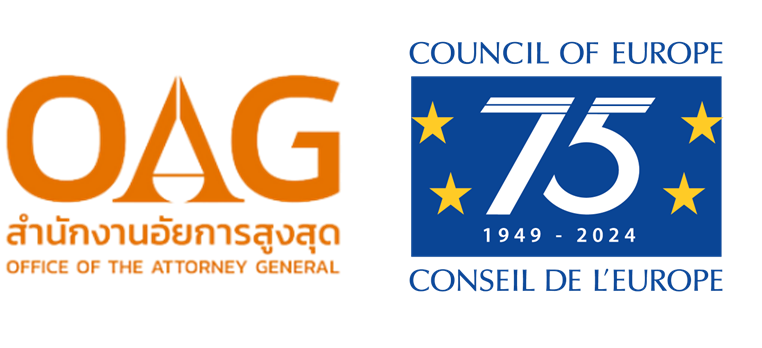Regional workshop on cybercrime and electronic evidence in Southeast Asia

organised by the Office of the Attorney General of Thailand in cooperation with the Council of Europe in the framework of Octopus Project
Bangkok, Thailand | 2-4 September 2024

The Council of Europe – under the Octopus Project – is ready to support the Southeast Asian countries in strengthening their response to cybercrime and the challenges of electronic evidence The initiative begins with organising a regional workshop aimed at fostering a deeper understanding of regional and domestic efforts, priorities, and challenges. As a framework for discussions, an analysis of the current legislation on cybercrime and electronic evidence in selected countries of Southeast Asia will be conducted, setting the foundation for coordinated efforts in the region.
Background
Cybercrime is a complex and rapidly evolving transnational phenomenon that poses a significant threat to human rights, democracy and the rule of law as well as to national and international security. Moreover, with the increasing use of information and communication technologies, any type of crime may entail evidence on computer systems. Such electronic evidence is often stored in foreign, multiple, shifting or unknown jurisdictions; obtaining e-evidence poses major challenges to criminal justice authorities.
This is equally true for Southeast Asia, especially given high internet penetration rates in some countries of the region. The most common types of cybercrime threats in recent years included cyber scams (human trafficking-fueled fraud), business e-mail compromise campaigns, phishing, ransomware, e-commerce data interception, crimeware-as-a-service, cryptojacking as well as online child sexual exploitation and abuse (OCSEA). The COVID-19 pandemic has additionally exacerbated these trends as shown in a regional study by the Council of Europe on COVID-19 related cybercrime in Asia.
Governments all over the world have taken a range of measures to address the challenge of cybercrime and electronic evidence. Often this includes the adoption of legislation based on the Convention on Cybercrime (Budapest Convention) and international cooperation mechanism under this treaty.
Expected outcome
By the end of the regional workshop it is expected that:
- an analysis of current legislation and avenues for the further strengthening of domestic legislation on cybercrime and electronic evidence in selected countries of Southeast Asia will be available
- participants will have a better understanding of the benefits of international agreements and standards on cybercrime and electronic evidence as well as on online child sexual exploitation and abuse, and will have considered opportunities for accession to the Convention on Cybercrime (Budapest Convention) and the Convention on Protection of Children against Sexual Exploitation and Sexual Abuse (Lanzarote Convention)
- priorities for capacity building on cybercrime and electronic evidence and OCSEA will have been identified
Participants
Each of the eight participating countries in addition to Thailand (Brunei Darussalam, Cambodia, Indonesia, Laos, Malaysia, Philippines, Singapore, Vietnam) have been invited to nominate up to four officials from relevant authorities (such as Ministries of Justice, prosecution services, law enforcement, policy makers or legislators).
Administrative arrangements
- Venue: The conference will take place in-person in Bangkok, Thailand [venue in downtown, TBC].
- Language: The working language of the workshop will be English.
- Visa: kindly note that visa arrangements are the traveler’s responsibility
- Accommodation: more details to be announced shortly
- Meals: more details to be announced shorty
Resources
- Council of Europe: Convention on Cybercrime (also known as the Budapest Convention)
- Council of Europe: Second Additional Protocol to the Convention on Cybercrime (Treaty Office)
- Council of Europe: Second Additional Protocol to the Convention on Cybercrime (dedicated webpage)
- Council of Europe: Guidance Notes regarding the use of the Convention on Cybercrime
- Council of Europe: Cybercrime Convention Committee (T-CY)
- Full report: The Budapest Convention on Cybercrime: benefits and impact in practice, July 2020 (.pdf)
- Leaflet on the Budapest Convention benefits [ EN / FR / ESP ] (Latest update: June 2024)
- Council of Europe/ Octopus Project, COVID-19 related cybercrime in Asia: Regional Study, June 2022
- Council of Europe: Regional Conference on COVID-19 related cybercrime held in March 2022 in Sri Lanka
- Council of Europe: Octopus Platform
- Council of Europe: Octopus Conference
- Council of Europe: Octopus Project
Keep an eye on the webpage, as we will be adding more resources shortly.
 Day 1 – Mon, 2 September 2024
Day 1 – Mon, 2 September 2024
- Welcome and opening remarks
- Setting the scene: background and objectives of the programme
- Threats and trends on cybercrime and e-evidence in Southeast Asia
- International legal frameworks on cybercrime and OCSEA
- Legislation, policies and strategies on cybercrime and electronic evidence
 Day 2 – Tue, 3 September 2024
Day 2 – Tue, 3 September 2024
- International cooperation on cybercrime and electronic evidence
- Public/private cooperation on cybercrime and electronic evidence
- Bilateral sessions and networking
 Day 3 – Wed, 4 September 2024
Day 3 – Wed, 4 September 2024
- Relevant international and regional initiatives on cybercrime and electronic evidence for Southeast Asia
- Capacity building as enabler for effective criminal justice response on cybercrime and electronic evidence
- Closing session
Download the full agenda
Day 1
Presentations will be uploaded shortly after the event. Thank you for your patience. Do explore our other resources meanwhile.
 Day 2
Day 2
Presentations will be uploaded shortly after the event. Thank you for your patience. Do explore our other resources meanwhile.
 Day 3
Day 3
Presentations will be uploaded shortly after the event. Thank you for your patience. Do explore our other resources meanwhile.


